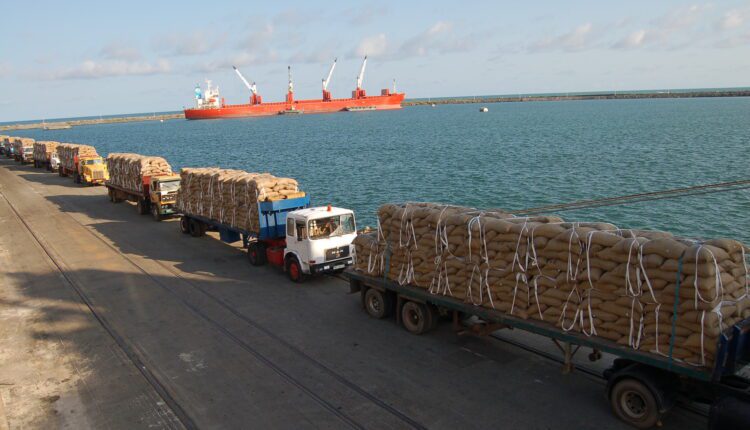A recently leaked official letter from the Ghana Cocoa Board, granting a request from the Afrotropic Cocoa Processing Company Limited to import cocoa beans into the country for processing, has led to some anxiety among stakeholders in the cocoa sector.
The said letter has raised concerns about whether or not Ghana, the cradle of premium quality cocoa imports cocoa beans for whatever reasons.
The major question on the lips of the citizenry, mostly expressed through social media and other online platforms, is, “Does Ghana import cocoa beans? If so, since when did this start?
This article puts into perspective an opinionated position in an attempt to answer the question.
In January 2024, the Bank of Ghana (BoG) reported that cocoa is currently the third most important export commodity in Ghana, coming after gold and oil and accounting for 13% of the country’s total export receipts.
It is noteworthy that of these major export commodities, cocoa is the only commodity for which Ghana has 100 percent retention of foreign exchange.
The foreign exchange that accrues to Ghana from the sale of cocoa beans on the international market is very important to the country’s economy as it stabilises the local currency, reduces the balance of payment deficits, increases the country’s import cover, and also shores up our net international reserves.
The popular slogan “Cocoa is Ghana! and Ghana is Cocoa” therefore epitomises the enormous socio-economic importance of cocoa as well as the national pride associated with its cultivation.
The widespread circulation of the leaked letter and hue and cry that characterised its subject matter left a lot of our compatriots bewildered as to why a story must ever be told that Ghana imports cocoa, especially when Ghana is supposed to be currently the world’s second leading producer and exporter of cocoa, coming second only after neighbouring Cote d’Ivoire.
So, what exactly is the issue? Does the government of Ghana import cocoa beans? The answer is NO!! Ghana, as a country, has never imported cocoa from any other country.
Ghana Cocoa Board, the industry regulator, is mandated to export cocoa beans for the general good of the economy.
However, local grinders and processors require cocoa beans to feed their factories.
Per the Bean Purchase Agreement they sign with COCOBOD, local cocoa processing companies are given a fair share of the light crop beans.
Light crop cocoa beans mostly account for 15-20% of Ghana’s average annual cocoa production.
This is what is distributed to all local processors/grinders for their operations.
In view of the fact that the light crop beans are mainly for local processors, a discount mainly between 20% to 30% of the prevailing market price, is given on light crop and small beans which is distributed to processors by COCOBOD based on their individual industrial and production capacities.
It is obvious that the share of the light crop beans obtained by local processors and grinders is normally not enough to meet their individual industrial capacities and production targets.
Under the circumstances, two options become available to the processors: to purchase Main Crop beans at the prevailing international market price or to source more affordable beans from elsewhere to meet their production targets.
Ghana’s main crop beans is quite expensive on the international market due to the premium price it attracts so most of these local processors are unable to buy much of it as the high cost of the main crop beans increases their cost of production.
They, therefore, prefer buying the beans elsewhere and blend them with the premium quality beans obtained from Ghana to get the desired taste and recipes.
Since COCOBOD is the only state institution mandated by law to give clearance to any entity that intends to import cocoa beans, these processors seek approval from the Board before any form of beans importation.
It is against this background that Afrotropic Cocoa Processing Company sought clearance from COCOBOD to source 2,500 metric tonnes of cocoa beans from Côte d’Ivoire and 1,000 metric tonnes from Nigeria, for which the Board granted permission, albeit with conditions.
It is instructive to note that this has been an industry practice that has existed for over twenty years. This arrangement allows local processors to bring cocoa beans from countries like Cote d’Ivoire, Togo, Nigeria, and Ecuador for their own industrial benefits.
Let us note that a lot of these local cocoa processing industries are found in the Free Zone Enclave.
They duly benefit from tax and utility incentives, but unfortunately, most do not produce finished products for the local market; they rather process the beans into semi-finished products for the export market, ostensibly to maximise profit.
Striking a balance between the stability of our economy with our cocoa receipts and the parochial interest of local grinders therefore becomes a major issue.
It is therefore imperative for the country to see where to tilt the balance, and I believe, based on the foregoing discussions, that the stability of the economy is paramount.
I am of firm conviction that as COCOBOD continues to implement various interventions to increase and sustain the nation’s annual cocoa production output, we can have enough beans at our disposal to meet the demands of all local grinders and processors.
But until then, let us respect the prevailing arrangement for the general good of the country.
May the Almighty God continue to bless our homeland Ghana and make us great and strong.
- Cocoa Farmers Pension Scheme: A Major Boost to Sustainable Cocoa Production in Ghana - July 22, 2024
- Issues Surrounding Importation of Cocoa Beans to Ghana: A Critical Look - February 12, 2024
- Highlighting the 4Ps of Cocoa Production in Ghana - January 26, 2024
